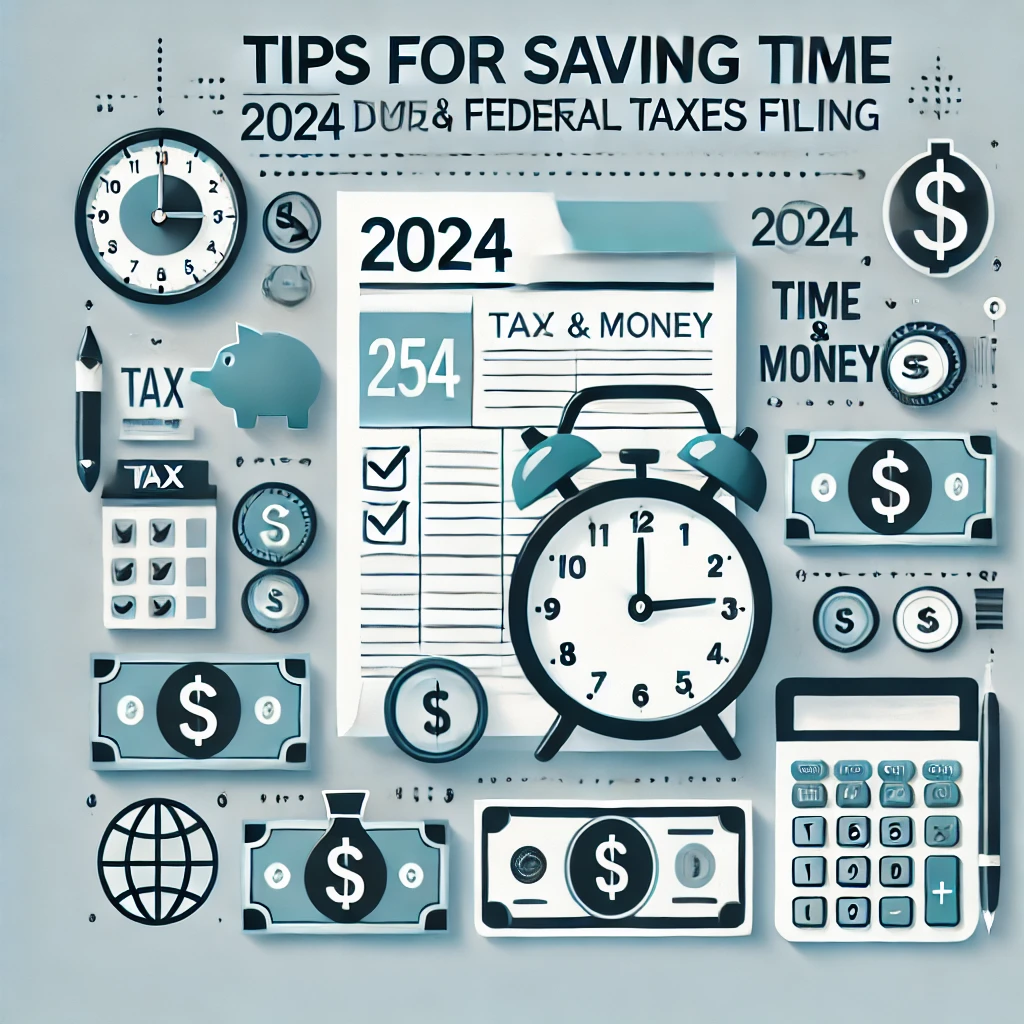Filing your federal taxes can be a stressful experience, but it doesn’t have to be. With the right knowledge and preparation, you can get through tax season smoothly, avoid common mistakes, and maybe even save some money. Here are the essential things to remember as you file your 2024 federal tax return.
Filing 2024 Federal Tax
1. Understand the Tax Deadline
First and foremost, you must know when your taxes are due. In the case of most people, it is on April 15, 2025, the deadline to file your 2024 federal tax return. However, there are exceptions as well:
- Natural disaster victims: If you live in an area that has been federally declared a disaster area, such as those affected by wildfires in Southern California, the IRS will give you an extension. For example, residents of those areas now have until October 15, 2025, to file.
- Combat zones and contingency operations: The armed forces members are covered as they are placed in a combat zone or contingency operation.
- Victims of terrorist activity: Taxpayers affected by all the activities that took place in Israel after 7th October 2023, are to file by 30th September 2025
Always check the IRS website for special extensions if you believe you qualify.
Also read : Personal Branding For Entrepreneurs And Small Business Owners
2. You Can File for an Extension-but Not for Payment
If you need more time to file, you can request an automatic extension until October 15, 2025, by submitting IRS Form 4868 by the April deadline. There is a catch, though: an extension only gives you more time to file your paper but does not delay the due date of the taxes if amounts are owed.
Failure to pay on time may incur penalties. These are:
- Failure-to-file penalty: 5% of the unpaid tax amount each month.
- Failure-to-pay penalty: 0.5% of the unpaid tax per month.
- Both penalties top out at 25%, so paying what you owe on time can save you money.
3. Special Tax Forms for Older Taxpayers
If you are 65 or older, preparing your tax return may be a bit easier. The IRS has a special Form 1040-SR for seniors. It includes:
- Text that is larger and easier to read.
- A chart that calculates your standard deduction.
- This form helps ensure that older taxpayers take full advantage of higher standard deductions.
4. Higher Standard Deductions for Seniors
The standard deduction is a fixed amount that reduces your taxable income. For 2024, the standard deduction is:
- $14,600 for single filers.
- $29,200 for married couples filing jointly.
However, when you are 65 or older, you automatically qualify for an even higher standard deduction:
- Single filers receive an extra $1,950, bringing their total to $16,550.
- Married couples, as long as both spouses are 65+, receive an extra $3,100, making their total deduction $32,300.
This can very much eat away at your taxable income, so you wouldn’t want to miss out.
5. Not Everyone Has to File a Tax Return
You don’t have to file a tax return if your income is below the standard deduction. You only file if your gross income is over certain thresholds – $14,600 if you’re single and under 65, $16,550 for someone over 65 who’s single. But there are circumstances where you should file even if your income falls under that threshold.
For example:
- You have self-employment income of more than $400.
- You have alternative minimum tax or household employment taxes
- You took distributions from an HSA, or you are eligible for certain tax credits
- You can skip this step if you owe no taxes and don’t need a refund, but it may be worth filing if you’re eligible for refundable tax credits such as the EITC or Premium Tax Credit.
6. Deductions You Can Still Claim That You Can’t Itemize
So most people use the standard deduction. If you don’t itemize, then you can still avail yourself of the following deductions:
- Contributions to a Health Savings Account
- Interest on student loans of up to $2,500
- Fees for penalty withdrawal of savings
- Half of the self-employment tax
- Contribution to the retirement accounts, such as SEP IRA and SIMPLE IRA.
- These deductions lower your taxable income; therefore, benefit from them.
Also read : Top 10 Black American Pop Artists: Icons of Music History
7. E-file for quick refund
The IRS encourages taxpayers to file electronically and opt for direct deposit. Here’s why:
- Electronic filing typically results in refunds within three weeks.
- Filing a paper return can take four weeks or more to process, especially if corrections are needed.
- If you’re eager to receive your refund, filing electronically is the way to go.
8. Filing Early Protects Against Fraud
It’s tax season. The worst: you might fall prey to an identity thief, who could even file a return under your name, and swipe the refund before you have the opportunity to do it.
The risk will be less if you file as early as you can. Here are a few things you can do to stay secure:
- Request an Identity Protection PIN from the IRS. It adds an extra layer of security to your tax return than ever before. 9. IRS Refund Tracker
- Once you e-file, you don’t have to guess when that refund is going to show up. The IRS has a “Where’s My Refund?” tool on its website which allows you to track the status of your refund in real-time.
9. Use Free Tax Assistance
You don’t have to go it alone when filing your taxes. Free assistance is available to many taxpayers:
- AARP Foundation Tax-Aide: This service helps older adults and low- to moderate-income taxpayers.
- Volunteer Income Tax Assistance (VITA): For those whose income is $67,000 or less.
- Free File Program of the IRS: Free tax software for those whose incomes are under $84,000.
- You can save money and file your taxes right with this help.
10. Avoid Common Filing Mistakes
Errors on your tax return will delay your refund or result in penalties. Make sure you double-check the following before filing:
- Your Social Security number is correct.
- Report all income, whether it’s a freelance or side job.
- Your return should be signed.
- Be accurate, don’t rush.
11. You Need to Report Cryptocurrency Transactions
If you sold, traded, or received cryptocurrency in 2024, you must report it. You’ll calculate your gain or loss using IRS Form 8949. In case you didn’t report the activity in cryptocurrency, it might get audited, and even attract some penalties.
12. Keep Documents for Three Years
You need to keep all the tax documents safe for three years for auditing purposes:
- W-2s and 1099s
- Receipts for the deductive expense
- Proof of the tax credits or exemption you claimed, etc.
- Record keeping can ease your headache a little later.
13. Benefit from Tax Credits
A tax credit reduces the liability amount of tax. They are refundable too, meaning that you would get money back irrespective of the condition that you pay nothing. Some famous credits include the following:
- Child Tax Credit: Up to $2,000 per child.
- EITC: For low- to moderate-income workers.
Also read : 40 Black History Month Trivia Questions to Test Your Knowledge
Conclusion
Do not hesitate to seek assistance when necessary are ways to make tax time less painful and more enjoyable. Preparation is the key; therefore, get an early start and keep yourself








